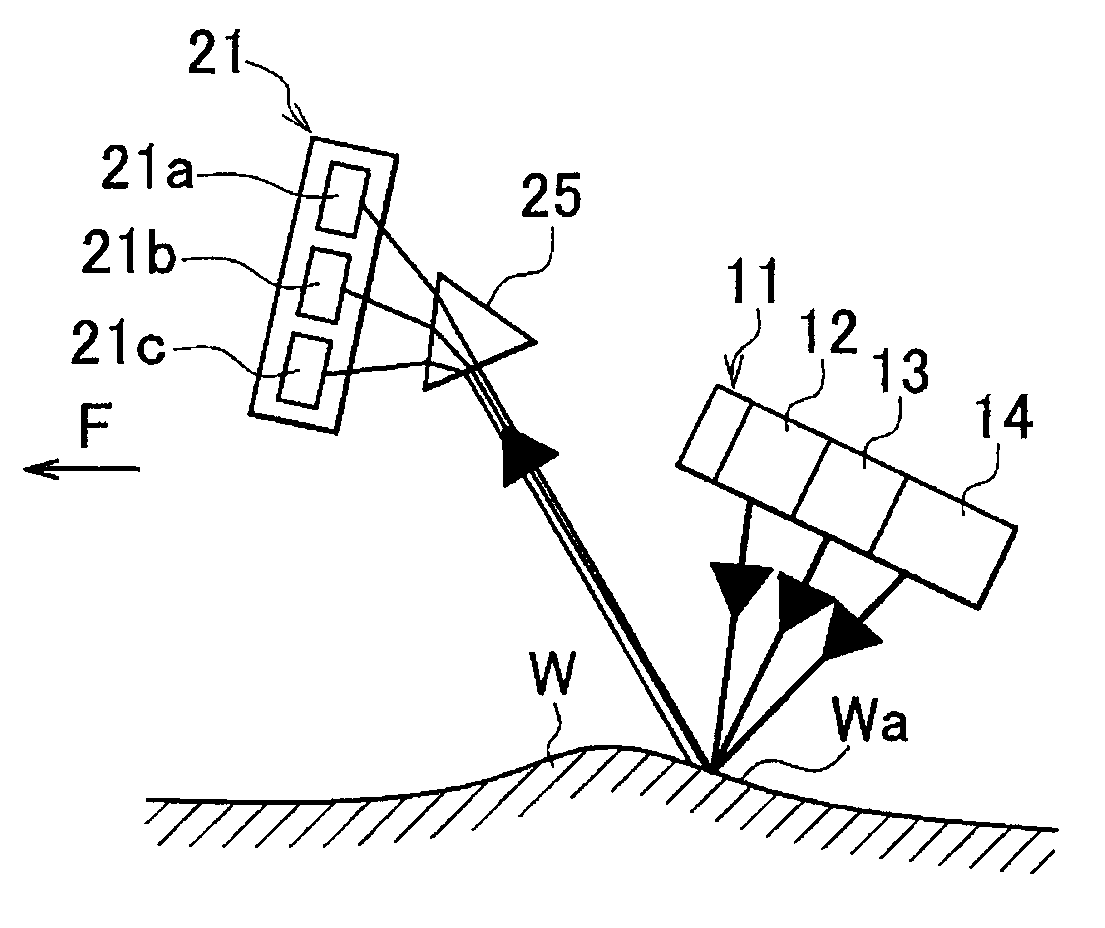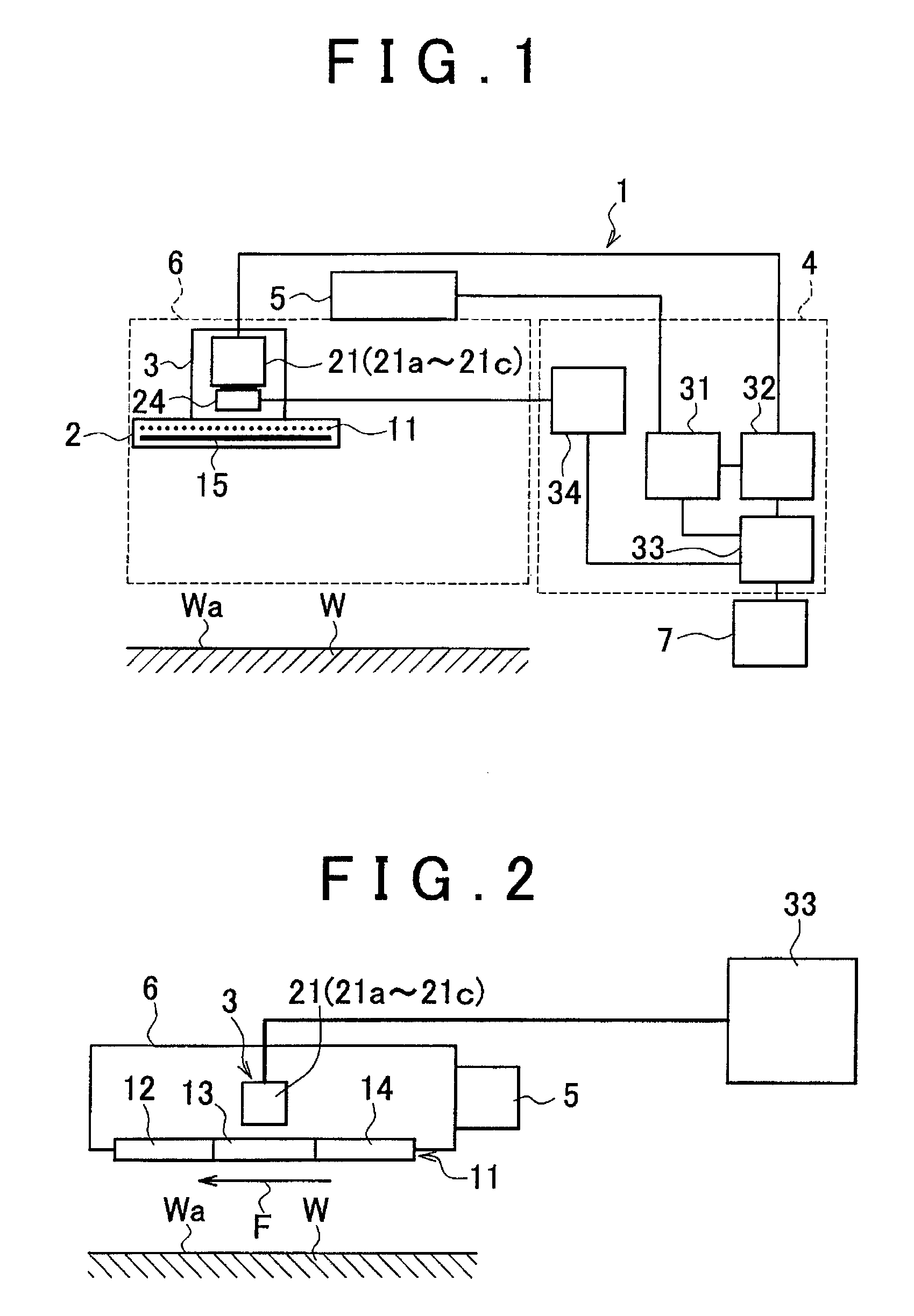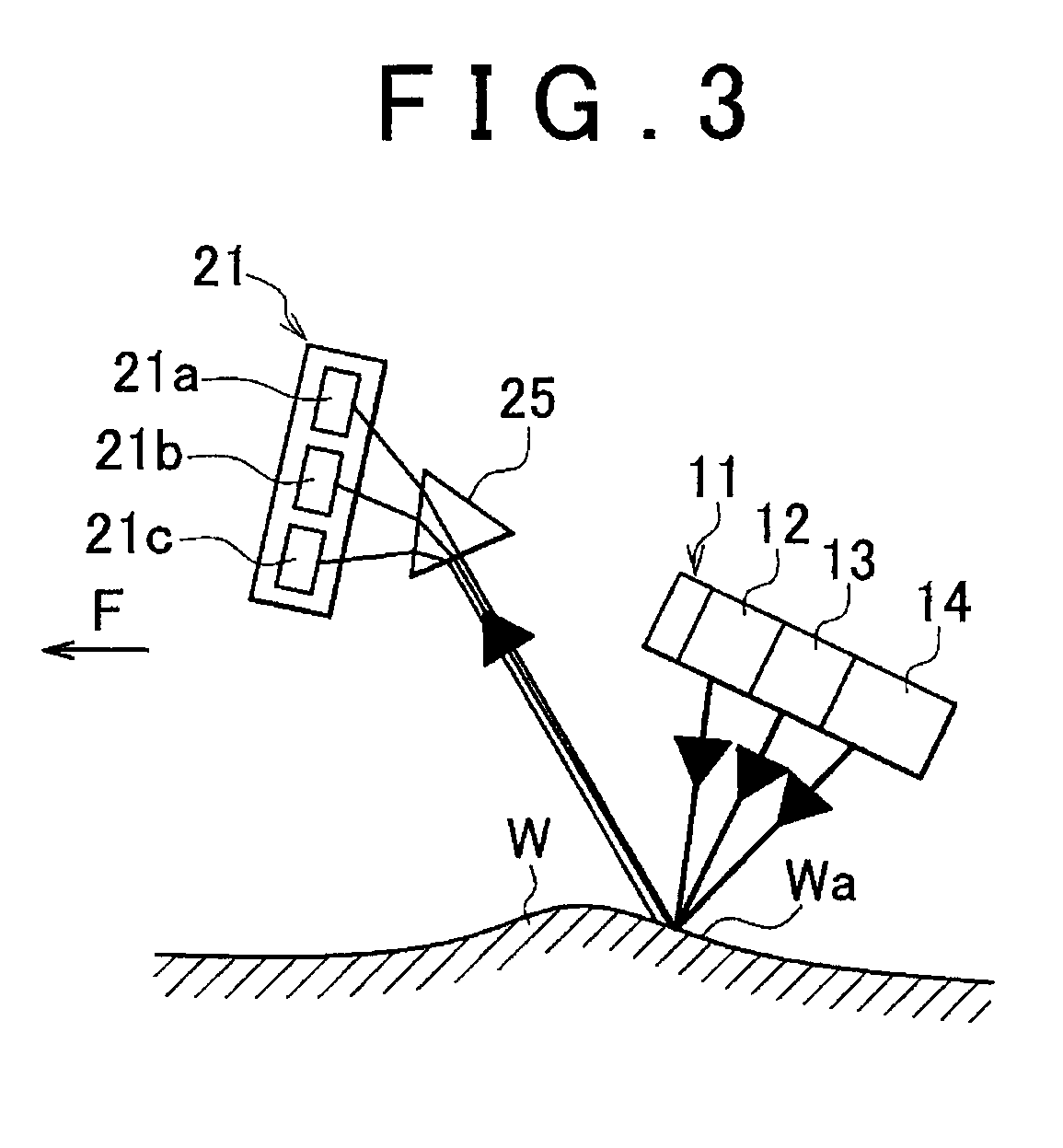Surface inspection apparatus
a technology for inspection apparatus and surface, applied in the direction of measurement devices, material analysis, instruments, etc., can solve the problems of reducing inspection capability, difficult to maintain uniformity, and difficulty in increasing productivity, and achieve the effect of high accuracy and quick and easy detection of defects
- Summary
- Abstract
- Description
- Claims
- Application Information
AI Technical Summary
Benefits of technology
Problems solved by technology
Method used
Image
Examples
first embodiment
[0082]the invention will be described with reference to the drawings.
[0083]FIG. 1 is a block diagram illustrating the overall construction of a surface inspection apparatus 1 according to the first embodiment of the invention, and FIG. 2 is a conceptual view useful for explaining the construction of a sensor unit 6, while FIG. 3 is a view schematically showing a method of inspecting a surface state or profile by means of the surface inspection apparatus 1. The surface inspection apparatus 1 of this embodiment is characterized in that the acceptable ranges of inclinations of a line camera 21 and an illuminating device 11 with respect to an inspection surface Wa of a body W to be inspected are large.
[0084]As shown in FIG. 1, the surface inspection apparatus 1 has an irradiating unit 2 that emits a plurality of illumination light beams R, B having mutually different wavelength ranges, an imaging unit 3 that captures images of an inspection surface Wa of a body W to be inspected which i...
second embodiment
[0129]In the second embodiment, on the other hand, an intermediate light source 16 having both of the wavelength ranges of the light sources 12, 13 is provided between the adjacent light sources 12, 13, and an intermediate light source 17 having both of the wavelength ranges of the light sources 13, 14 is provided between the adjacent light sources 13, 14, as shown in FIG. 10A.
[0130]With this arrangement, even when the sensor unit 6 is brought into the above-described inclined position relative to the inspection surface Wa, reflected light having a stable wavelength range can be received by the imaging unit 3, and the accuracy in detection of defects Wb will not be reduced.
[0131]FIG. 11 and FIG. 12 show specific examples that implement the second embodiment. The example shown in FIG. 11 utilizes the arrangement of LED emitters 12a, 13a, 14a used as illuminators of the illuminating means 101. The red light source 12 is formed by placing a plurality of red LEDs 12a in a line, and the ...
third embodiment
[0142]Next, the invention will be described with reference to FIG. 13 through FIG. 24. In these figures, the same reference numerals as used in the above-described embodiments are used for identifying the same or corresponding constituent elements, of which no detailed description will be provided.
[0143]In this embodiment, an object detected by the image processing means 33 is identified. More specifically, it is determined whether the object detected by the image processing means 33 is a protrusion / recess defect Wb, a color defect Wc1, Wc2, a foreign matter Wd, such as dust deposited on the inspection surface Wa, or a design feature, such as a hole We formed through the inspection surface Wa, step, or an edge.
[0144]The color defect means a point, or the like, which is formed on the inspection surface Wa having a single color or substantially the same color and has a color different from that of the inspection surface Wa. The color defect may be a dark-color defect Wc1 that is a dot...
PUM
| Property | Measurement | Unit |
|---|---|---|
| area | aaaaa | aaaaa |
| wavelength | aaaaa | aaaaa |
| wavelength | aaaaa | aaaaa |
Abstract
Description
Claims
Application Information
 Login to view more
Login to view more - R&D Engineer
- R&D Manager
- IP Professional
- Industry Leading Data Capabilities
- Powerful AI technology
- Patent DNA Extraction
Browse by: Latest US Patents, China's latest patents, Technical Efficacy Thesaurus, Application Domain, Technology Topic.
© 2024 PatSnap. All rights reserved.Legal|Privacy policy|Modern Slavery Act Transparency Statement|Sitemap



